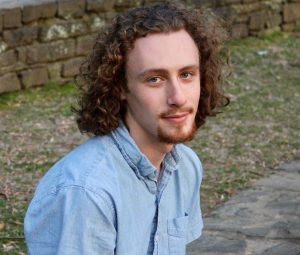 Abraham Lyon is from Massachusetts and is currently an undergraduate at Columbia University studying literature, history, and mathematics. Abraham works as an editor for the Columbia Journal of Literary Criticism, as an intern for WKCR, and as a volunteer for the Housing Equity Project to build relationships with people in the Morningside Heights and Manhattanville communities affected by housing inequality. Abraham wants to unite academic and service work to understand and confront systems of inequity and injustice.
Abraham Lyon is from Massachusetts and is currently an undergraduate at Columbia University studying literature, history, and mathematics. Abraham works as an editor for the Columbia Journal of Literary Criticism, as an intern for WKCR, and as a volunteer for the Housing Equity Project to build relationships with people in the Morningside Heights and Manhattanville communities affected by housing inequality. Abraham wants to unite academic and service work to understand and confront systems of inequity and injustice.
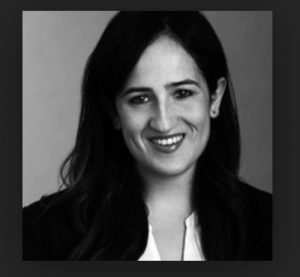 Daniella Spencer-Laitt is originally from Perth, Western Australia. She obtained a Bachelor of Arts in Political Science from the University of Western Australia and a degree in law with honors from the same University. Following completion of law school, Danni worked for a year as a law clerk for two justices of the Supreme Court of Western Australia. This role involved exposure to the complexities and inequities of the criminal justice system which ignited a passion for criminal justice reform. Danni worked as a lawyer for a large international law firm for three years, and during that time published scholarly work in the area of corporate criminal law and pursued voluntary community legal work. Danni is now pursuing a Masters degree at Columbia School of Social Work where she is a Management Fellow. Danni’s ambition is to merge the fields of law and social work to provide seamless services to indigent criminal defendants.
Daniella Spencer-Laitt is originally from Perth, Western Australia. She obtained a Bachelor of Arts in Political Science from the University of Western Australia and a degree in law with honors from the same University. Following completion of law school, Danni worked for a year as a law clerk for two justices of the Supreme Court of Western Australia. This role involved exposure to the complexities and inequities of the criminal justice system which ignited a passion for criminal justice reform. Danni worked as a lawyer for a large international law firm for three years, and during that time published scholarly work in the area of corporate criminal law and pursued voluntary community legal work. Danni is now pursuing a Masters degree at Columbia School of Social Work where she is a Management Fellow. Danni’s ambition is to merge the fields of law and social work to provide seamless services to indigent criminal defendants.
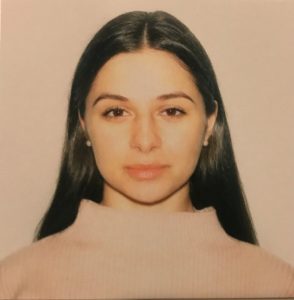 Diana Horobets is a transferred student from Ukraine who currently is a senior in the School of General Studies. Diana studies Human Rights with a particular focus on mass incarceration. She developed an interest in justice-related issues after studying at a community college. After transferring to Columbia she devoted her efforts toward researching the topic, which eventually brought her to teaching in Metropolitan Detention Center in Brooklyn. Diana is also interested in human rights issues in foreign countries. As a member of Phi Theta Kappa, in May of 2018, she had a diplomatic trip to South Africa where she learned about current challenges in the country including violence against women and land appropriation without reparation. Before moving to America, Diana was a member of the student government at Sumy State University and was a part of a college dance team. Currently, she is interested in martial arts and snowboarding.
Diana Horobets is a transferred student from Ukraine who currently is a senior in the School of General Studies. Diana studies Human Rights with a particular focus on mass incarceration. She developed an interest in justice-related issues after studying at a community college. After transferring to Columbia she devoted her efforts toward researching the topic, which eventually brought her to teaching in Metropolitan Detention Center in Brooklyn. Diana is also interested in human rights issues in foreign countries. As a member of Phi Theta Kappa, in May of 2018, she had a diplomatic trip to South Africa where she learned about current challenges in the country including violence against women and land appropriation without reparation. Before moving to America, Diana was a member of the student government at Sumy State University and was a part of a college dance team. Currently, she is interested in martial arts and snowboarding.
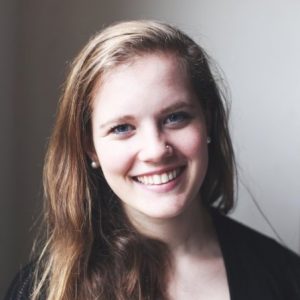 Elizabeth Wolozin is a research assistant with the Center for Justice, working to investigate the impact of dehumanizing language on people in prison. Elizabeth has a B.A. in History and Women, Gender and Sexuality studies from Barnard College. She comes to the Center for Justice from the Legal Aid Society’s Prisoners’ Rights Project, where she worked with people held in pre-trial detention at Rikers Island in New York City, advocating for their health and safety. In that role, Elizabeth spent years conducting interviews with people held in solitary confinement and other highly restrictive settings in the New York City jails. She worked with people assaulted by correctional officers, with people who had disabilities that were not being accommodated in jail, and with people who were severely mentally ill, pushing for safer housing and programming, better medical and mental health treatment, and increased accountability for staff. Elizabeth is committed to disrupting mass incarceration and empowering communities through innovative approaches to criminal justice reform.
Elizabeth Wolozin is a research assistant with the Center for Justice, working to investigate the impact of dehumanizing language on people in prison. Elizabeth has a B.A. in History and Women, Gender and Sexuality studies from Barnard College. She comes to the Center for Justice from the Legal Aid Society’s Prisoners’ Rights Project, where she worked with people held in pre-trial detention at Rikers Island in New York City, advocating for their health and safety. In that role, Elizabeth spent years conducting interviews with people held in solitary confinement and other highly restrictive settings in the New York City jails. She worked with people assaulted by correctional officers, with people who had disabilities that were not being accommodated in jail, and with people who were severely mentally ill, pushing for safer housing and programming, better medical and mental health treatment, and increased accountability for staff. Elizabeth is committed to disrupting mass incarceration and empowering communities through innovative approaches to criminal justice reform.
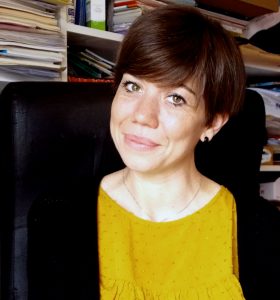 Federica Coppola, Ph.D., is a postdoctoral scholar in the Presidential Scholars in Society and Neuroscience program at Columbia University and a Lecturer in Criminal Law and Neuroscience at Columbia Law School. Her work uses psychological and neuroscientific knowledge about the role of socio-emotional factors in moral decision-making and social behavior to inform changes in criminal law doctrines, theories of punishment and correctional practices. Currently, her main focus is to use this branch of scientific findings to reform restrictive and retributive approaches to crime and redirect criminal justice towards social rehabilitation. She has published articles and book chapters on criminal culpability, excuse doctrines, punishment, as well as on the use of neuroscientific tools for forensic purposes. Dr. Coppola earned a JD summa cum laude from the University of Bologna Law School in 2010 and an LLM in Comparative, European, and International Laws from the European University Institute in 2014. She received a Ph.D. in Law from the European University Institute in 2017. In 2016, she was a visiting scholar at the University of Pennsylvania Law School and at the Penn Center for Neuroscience and Society. She has been a lecturer at the School of Law and Neuroscience at the University of Pavia, as well as a lecturer in Criminology at the University of Passau Law School. Prior to joining academia, Federica worked as a criminal defense attorney on cases involving crimes against the person and crimes against public administration.
Federica Coppola, Ph.D., is a postdoctoral scholar in the Presidential Scholars in Society and Neuroscience program at Columbia University and a Lecturer in Criminal Law and Neuroscience at Columbia Law School. Her work uses psychological and neuroscientific knowledge about the role of socio-emotional factors in moral decision-making and social behavior to inform changes in criminal law doctrines, theories of punishment and correctional practices. Currently, her main focus is to use this branch of scientific findings to reform restrictive and retributive approaches to crime and redirect criminal justice towards social rehabilitation. She has published articles and book chapters on criminal culpability, excuse doctrines, punishment, as well as on the use of neuroscientific tools for forensic purposes. Dr. Coppola earned a JD summa cum laude from the University of Bologna Law School in 2010 and an LLM in Comparative, European, and International Laws from the European University Institute in 2014. She received a Ph.D. in Law from the European University Institute in 2017. In 2016, she was a visiting scholar at the University of Pennsylvania Law School and at the Penn Center for Neuroscience and Society. She has been a lecturer at the School of Law and Neuroscience at the University of Pavia, as well as a lecturer in Criminology at the University of Passau Law School. Prior to joining academia, Federica worked as a criminal defense attorney on cases involving crimes against the person and crimes against public administration.
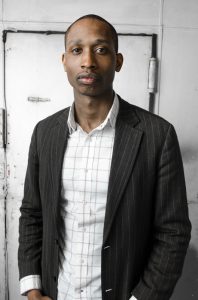 Pastor Isaac Scott is a formerly incarcerated artist and activist. As the Program Director for The Confined Arts, he is a leader in promoting justice reform and prison abolition through the transformative power of the arts. Since returning to society, he’s combined fine art and graphic design with his passion for the arts to accomplish goals that could not have been achieved without such a socially valued means of expression. Isaac’s passion for equal human rights runs deep as a result of being directly affected by the criminal justice system and its disenfranchising nature. Today, Isaac is a 2018 Change Agent Award recipient from the School of General Studies at Columbia University, where he currently studies film and media as a Justice in Education Scholar. Pastor Scott is also the Arts and Communications Coordinator at the Center for Justice at Columbia University. His work includes research, public speaking, and managing the center’s public outreach. Isaac is studying filmmaking to pursue his ambitions for producing content that honestly represents the true lived narratives of stigmatized people. He believes that art, in every form, is effective in changing perceptions and conquering stigma. Through lived experience, Isaac personally understands the need for realistic representations of individuals like himself, who’ve been convicted of a crime in the past. Isaac also understands the healing power of the arts; it’s influential enough to transform both the artist and the audience. He is now in a position to assist those artists following behind him and to use his creativity in many ways to continue educating and promoting change.
Pastor Isaac Scott is a formerly incarcerated artist and activist. As the Program Director for The Confined Arts, he is a leader in promoting justice reform and prison abolition through the transformative power of the arts. Since returning to society, he’s combined fine art and graphic design with his passion for the arts to accomplish goals that could not have been achieved without such a socially valued means of expression. Isaac’s passion for equal human rights runs deep as a result of being directly affected by the criminal justice system and its disenfranchising nature. Today, Isaac is a 2018 Change Agent Award recipient from the School of General Studies at Columbia University, where he currently studies film and media as a Justice in Education Scholar. Pastor Scott is also the Arts and Communications Coordinator at the Center for Justice at Columbia University. His work includes research, public speaking, and managing the center’s public outreach. Isaac is studying filmmaking to pursue his ambitions for producing content that honestly represents the true lived narratives of stigmatized people. He believes that art, in every form, is effective in changing perceptions and conquering stigma. Through lived experience, Isaac personally understands the need for realistic representations of individuals like himself, who’ve been convicted of a crime in the past. Isaac also understands the healing power of the arts; it’s influential enough to transform both the artist and the audience. He is now in a position to assist those artists following behind him and to use his creativity in many ways to continue educating and promoting change.
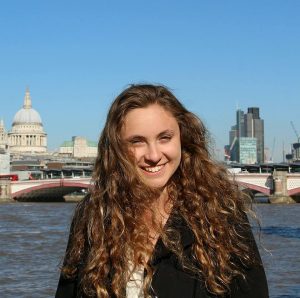 Lauren Hagani is a junior at Columbia University. She is studying sociology and is passionate about criminal justice reform, namely on making prisons, which are largely public institutions, more transparent to the general public. At the Center for Justice, she is working alongside Pastor Isaac Scott on a research study interviewing formerly incarcerated individuals. By focusing on how people who have experienced the prison system firsthand regard institutions of incarceration, their identities, and media representation of prisons and people in prison, this study seeks to uncover incongruities between public knowledge and the true experience of the criminal justice system.
Lauren Hagani is a junior at Columbia University. She is studying sociology and is passionate about criminal justice reform, namely on making prisons, which are largely public institutions, more transparent to the general public. At the Center for Justice, she is working alongside Pastor Isaac Scott on a research study interviewing formerly incarcerated individuals. By focusing on how people who have experienced the prison system firsthand regard institutions of incarceration, their identities, and media representation of prisons and people in prison, this study seeks to uncover incongruities between public knowledge and the true experience of the criminal justice system.
 Michele Favero is a research assistant at the Center for Justice and is currently learning from the M.S. in Negotiation and Conflict Resolution at Columbia University. His research focuses on creating positive peace through constructive dialogues to restore hope, cooperation, and love in communities from the inside out to achieve long-term positive sustainable peace.
Michele Favero is a research assistant at the Center for Justice and is currently learning from the M.S. in Negotiation and Conflict Resolution at Columbia University. His research focuses on creating positive peace through constructive dialogues to restore hope, cooperation, and love in communities from the inside out to achieve long-term positive sustainable peace.
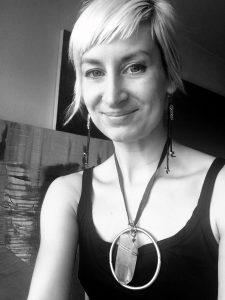 OH Prema is a GS Neuroscience and Behavior major at Columbia University. She is interested in the intersection of neuroscience, language, and social justice. Current research assistant work through the Justice Center with Isaac Scott and Federica Coppola is an investigation into law, public opinion, and dehumanization of incarcerated people. In her spare time she studies Sanskrit, teaches yoga, and mothers two fabulously goofy seven-year-old twin boys.
OH Prema is a GS Neuroscience and Behavior major at Columbia University. She is interested in the intersection of neuroscience, language, and social justice. Current research assistant work through the Justice Center with Isaac Scott and Federica Coppola is an investigation into law, public opinion, and dehumanization of incarcerated people. In her spare time she studies Sanskrit, teaches yoga, and mothers two fabulously goofy seven-year-old twin boys.
